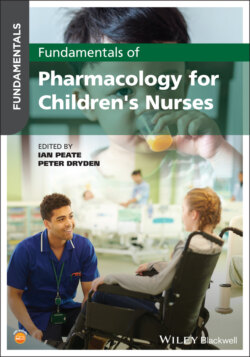Читать книгу Fundamentals of Pharmacology for Children's Nurses - Группа авторов - Страница 48
Multiple Choice Questions
Оглавление1 The Nursing and Midwifery Council’s purpose is to:Provide government with the details of those nurses and nursing associates who have been found guilty of misconductInform nurse managers how they are to determine patient dependencyPromote and uphold the highest professional standards in nursing and midwifery to protect the public and inspire confidence in the professionsAll of the above
2 To help patients make decisions about medicines:Provide time for them to ask questionsOffer them relevant information which is easy to understand and avoid the use of jargonProvide information that is structured and tailor this to the needs of the individual patient.All of the above
3 Medicines optimisation is generally associated with:The legal regulations in place to safely administer medicinesA more people‐centred approach to the use of medicine as part of a person’s careAnother phrase for capacityIs only ever used when the patient lacks capacity
4 Pharmacokinetics is associated with:The ability to safely calculate a drug doseThe biology of home remediesWhat the body does to a drug, the movement of drugs into, through and out of the bodyHow enzymes are metabolised in plantsInfusion pumps and equipment used to administer drugs
5 Pharmacodynamics is associated with:How toxins have effects on the bodyHow drugs have effects on the bodyThe prescribers prescribing skillsThe nurse’s competence in the administration of medicines
6 Adherence refers to:Specific patient behavioursThe study of power differentialsThe extent to which the patient’s behaviour matches agreed recommendations from the prescriberThe extent to which the patient’s behaviour matches the prescriber’s recommendation
7 The purpose of a medicine is to:Cause a build of toxins in the blood streamPrevent, alleviate or cure a symptom, disorder or disease stateCause a negative impact on a person’s health and well‐beingNone of the above
8 A patient’s/family’s beliefs and preferences about medication:May affect medication adherenceShould be moderated during medicines managementIs only appropriate in the adult patientWill not impact on medication adherence
9 Non‐adherence can result in:Unnecessary health costs and unnecessary investigationsChanges to routines which lead to increased safety risks Enhanced care provisionA better use of resources
10 The term ‘compliance’:Is a term with positive connotationsCan also infer ‘nurse knows best’Is never used in the care of CYPIs the same as concordance
11 Summaries of Product Characteristics (SPC) are:Held at all general practicesDo not apply to CYPIs a description of a medicinal product’s properties and the conditions attached to its useOnly apply to medicines that are imported from the USA
12 Every medicine pack includes a patient information leaflet:Providing information on using the medicine safelyThe patient information leaflet is based on information in the SPC of the medicineProvides information on using controlled drugs onlyA and B
13 Independent prescribers:Must be supervised at all times by a pharmacistAre only allowed to prescribe in the independent and voluntary sectorsAre able to prescribe any medicine provided it is in their competency to do so.Must also hold a pharmacy qualification
14 Pharmacology is:The study of chemical reactions and medicationThe study of how communities respond to the introduction of vaccinationsA branch of science that deals only with the effects of alcohol, nicotine and cannabis on living systemsA branch of science that deals with the study of drugs and their actions on living systems
15 A pharmacist is:A doctor who has a special interest in drugs and medicationsA licensed health professional who prepares, dispenses and advises on medicinal productsA scientist who researches new drugsAnother name for a chemist
